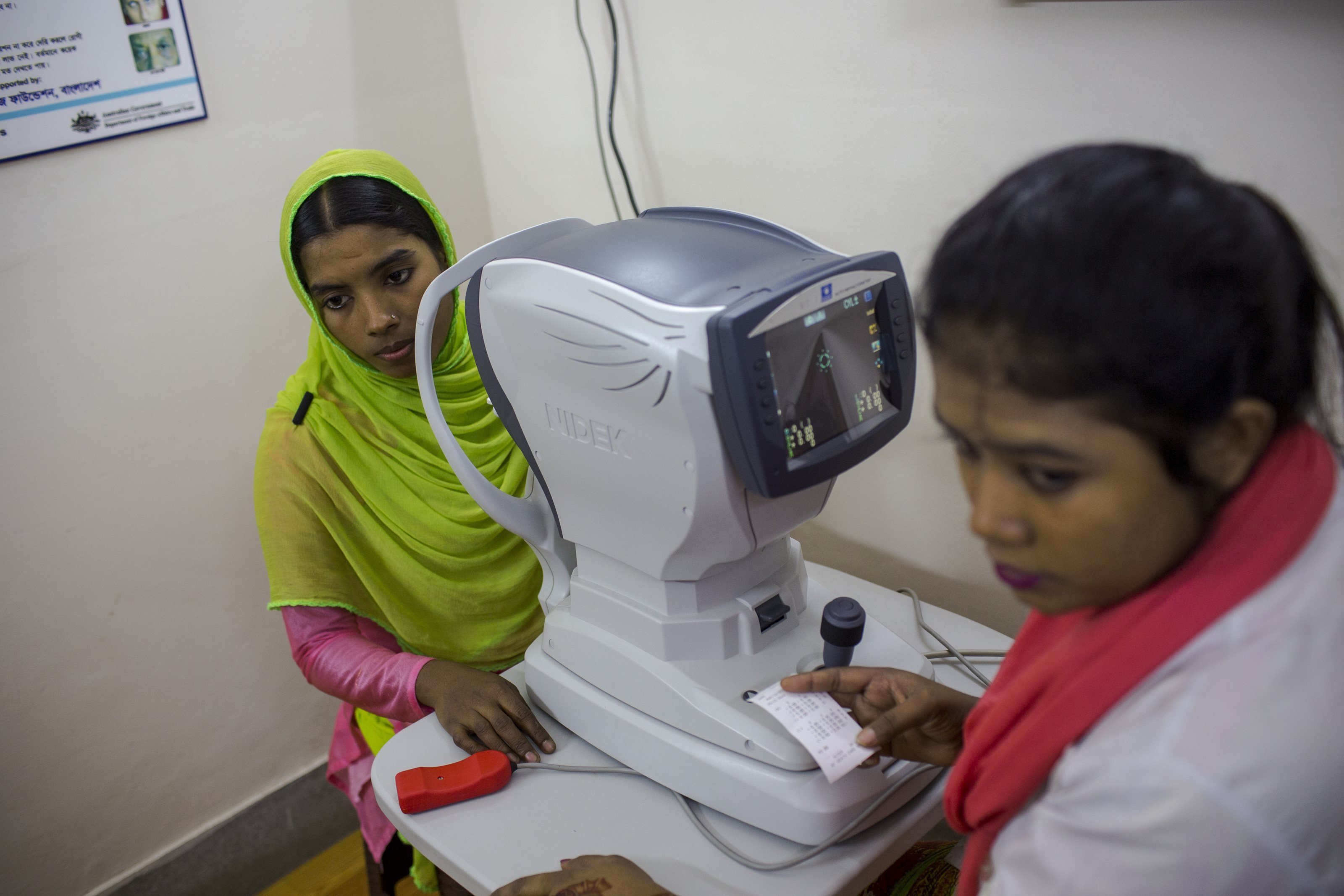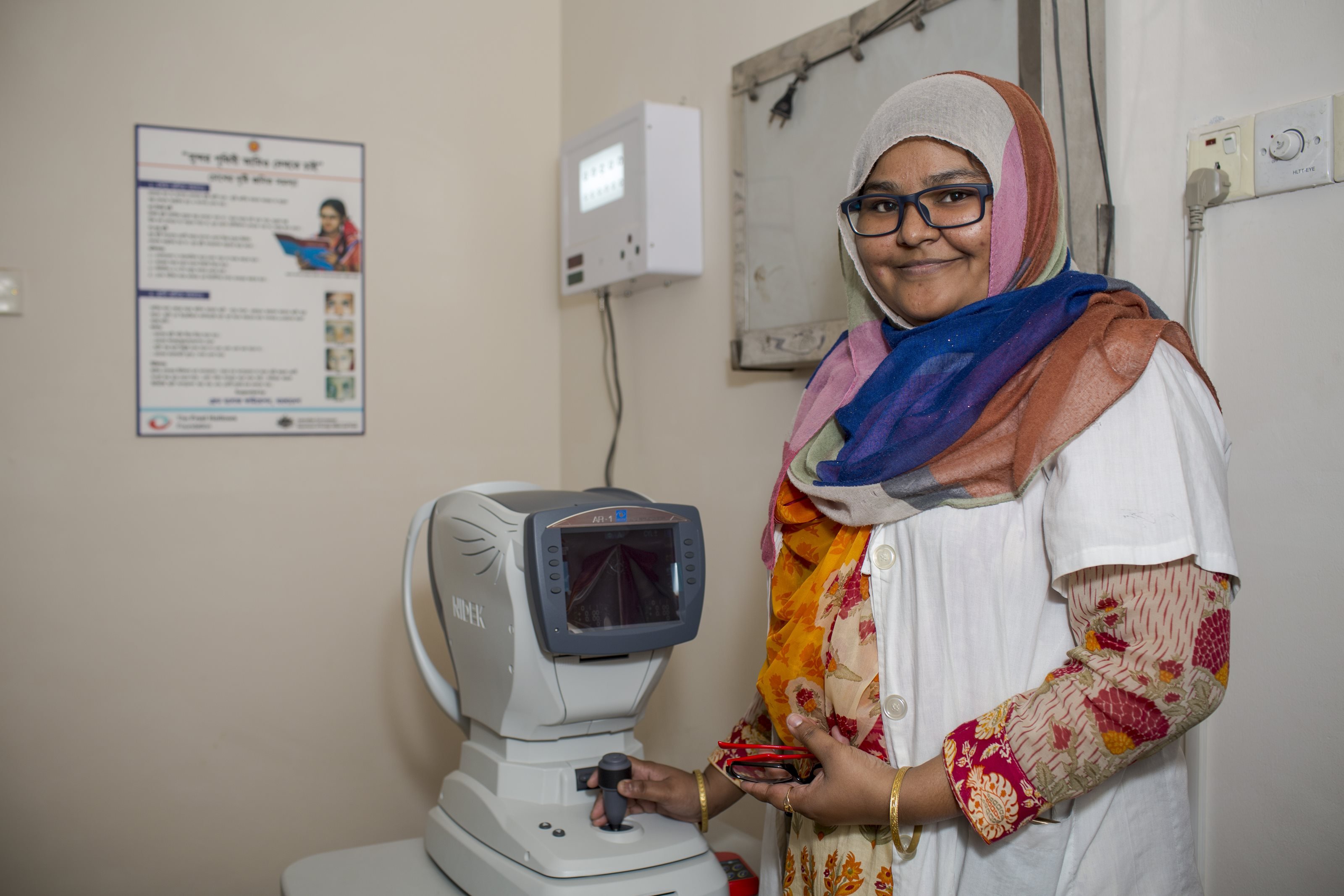Promoting Healthy Vision for Safety, Productivity, and Well-being in the Workplace

EYE HEALTH IN THE WORKPLACE
Maintaining healthy vision is crucial for workplace safety, productivity, and overall well-being. Employees rely on their vision to perform tasks effectively and safely, whether it's operating machinery, navigating hazards, or reading important documents. Unfortunately, work-related visual impairments affect millions of workers globally, limiting job opportunities, hindering inclusion, and posing long-term health risks.
Approximately 13 million workers worldwide experience work-related visual impairments, leading to reduced access to decent work, decreased inclusion, and potential threats to their long-term health and well-being. Impaired vision can result in accidents, injuries, and decreased productivity. In fact, people with visual impairments face a 30% decrease in employment opportunities. Poor eye health not only impacts individuals directly but also has a significant impact on the global economy, costing approximately $411 billion annually in lost productivity, as reported by The Lancet Global Health Commission.
This year, World Sight Day focuses on eye health in the workplace, aiming to raise awareness among employers about their employees’ eye health in the workplace.
The Fred Hollows Foundation, an international eye health development organization, has been at the forefront of providing accessible and affordable eye care services to those in need around the world. In Bangladesh, where the garment industry employs nearly 3.6 million people, with over 80% being women, there are significant challenges around eye health and productivity. Women involved in this industry spend long hours focused on needle threading and this repetitive and intricate work often leads to vision problems. In fact, visual impairments and eye strain rank among the top five health issues experienced by garment factory workers. Unfortunately, most workers lack access to basic eye health services, and financial constraints prevent them from getting their eyes checked. To address this issue, The Fred Hollows Foundation established visual detection corners in garment factories to provide convenient on-site eye care services and essential eye health information for workers. Additionally, in partnership with the Awaj Foundation in Bangladesh, The Foundation set up eye screening at special cafes near the factories for workers who cannot afford medical services or find time to access them. These cafes offer free, affordable and easy to access services outside of work hours, benefiting over 40,000 members and 255,000 garment workers in Dhaka and Chittagong. Through this initiative, doctors and nurses receive training in eye health and have access to specialized equipment for screening workers' eyes at the cafes.
These free eye screenings are essential for workers like Mossamut, who works in a garment factory in Dhaka. Mossamut spends hours focusing on fine needlework and repetitive tasks and experienced headaches, watery eyes, and blurred vision as a result. Fortunately, she had the opportunity to have her eyes screened at a special café set up near her workplace.

Photo: Michael Amendolia
Dr Selina Sency from the Awaj Foundation, who screened Mossamut's eyes, discovered a potentially serious issue, possibly an infection, and prescribed eye drops. Mossamut expressed her gratitude for receiving free eye services, stating, "I am really happy to receive eye services for free because I have been experiencing vision problems for the past couple of weeks."
Dr Sency received four days training on eye care including refractive testing and screening delivered by The Foundation. “There was no eye service until the Fred Hollows Foundation gave training and equipment and so it’s easier for workers to get their eyes checked and so I’m very thankful to the Foundation,” Dr Sency explained.

Photo: Michael Amendolia
These initiatives in Bangladesh demonstrate the profound impact of addressing eye health in the workplace. The screenings not only detect common eye issues but also identify more serious conditions that may require immediate attention. Employers must recognize the importance of eye health in the workplace and take proactive measures to support their employees. Regular eye check-ups, promoting the use of protective eyewear, ensuring adequate lighting conditions, and encouraging eye-friendly practices like taking breaks from screens are crucial steps in ensuring the well-being of the workforce. By prioritizing eye health, employers can improve productivity, enhance job performance, and contribute to overall health and wellbeing of employees.
Related articles

「2025同燃希望獎」圓滿結束!

Eye disease trachoma eliminated in Papua New Guinea

